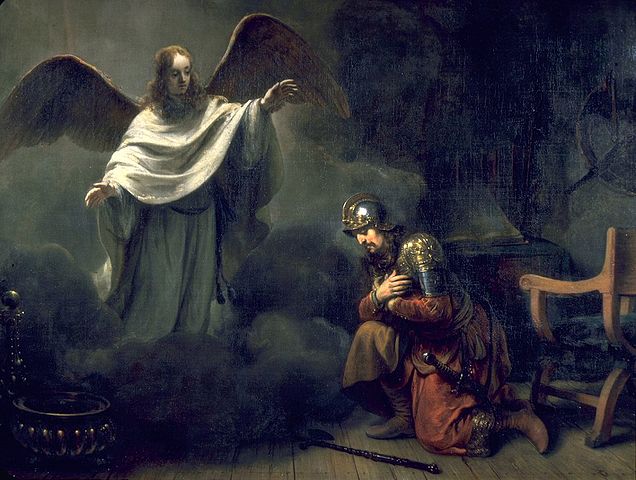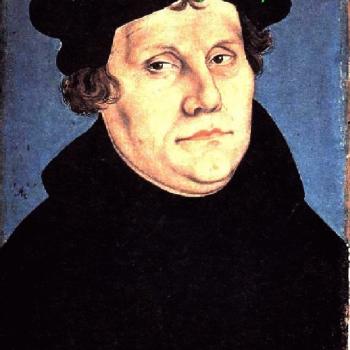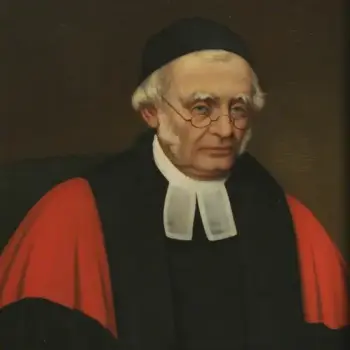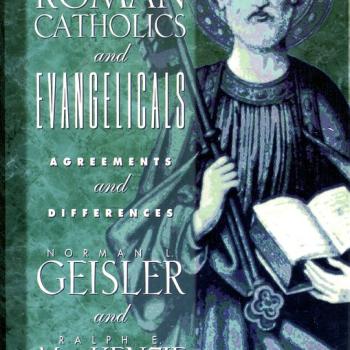
We can amiably discuss differences, but we also should come together where we have common ground, in order to be light and hope to the dying civilization all around us.
The Church is ecumenical while remaining dogmatic. Nothing has changed: only the willingness to see common ground where it exists.
What is it about ecumenism that makes people go ballistic and become irrational? It’s as if there is no such thing as ecumenism: as if any attempt towards it at all must be liberal indifferentism.
Can we talk sensibly and intelligently about ecumenism without fighting straw men and resorting to broad brush stereotypes? Or do we reject ecumenism altogether (the tunnel vision “radical Catholic reactionary” position), as if that is possible, given the Mind on the question of Holy Mother Church?
Human beings are simply given to extremes. That is the problem so often. Reject one extreme and go to the opposite extreme . . . throw the baby out with the bathwater. Because the liberals believe in indifferentism, therefore there is no possible legitimate ecumenism at all, etc. (so the false logic runs . . .).
This particular discussion in the original post seemed right-minded: “yeah, we disagree on this but we can work together in missions . . . ” That is exactly the right emphasis: come together on concrete issues such as how to better follow Christ in our day-to-day lives and how to proclaim His gospel message so that others can also come to Him and to salvation.
That’s how Protestants should view it. We Catholics also add the supreme importance of the Church, the [seven] sacraments, and apostolic tradition.
We can agree that pro-life, etc. is a good cause, and spreading the gospel and message of the fullness of Catholicism is also obviously a good cause and imperative.
Different people can be devoted to different things: since both broad goals are good and necessary. Hence my own emphasis (and my calling) is in spreading the Catholic Message. The next person may be devoted to pro-life. No one person can do everything that needs to be done.
What we can all do is refuse to pit these things against each other: social aspects of our faith and theological / spiritual ones. We don’t preach and ignore our society altogether, and we don’t get into all social action and neglect the faith. We accept both, and say both are good and necessary. And when we do the social stuff, we can fight alongside Protestant brethren: work together in those areas where we agree over against secularism and paganism and immorality.
I can try to reach Protestants and/or nominal or compromised Catholics (as I do all the time) with various Catholic truths. But I can still work side-by-side with them to fight societal evils, while we are not in full agreement.
But of course if Christians are always fighting each other, and even despising and reading others out of the faith altogether, then we will hardly work together to accomplish anything. That’s the devil’s victory of dividing and conquering.
Anti-Catholic Baptist apologist James White was once involved in Operation Rescue as I was (blocking of abortion death camp doors to save lives). He ceased being involved when they did a Catholic prayer one day. That is a prime example of bigotry preventing working together on issues where we fully agree. He could sit with the evil “papists” but he couldn’t bear an actual prayer made by them. That was the final straw . . .
Let me say this again for the umpteenth time, as I have for 21 years now:
Apologetics and ecumenism are complementary, not contradictory.
Lather, rinse, and repeat:
Apologetics and ecumenism are complementary, not contradictory.
I do both. Catholics are required to do both, per the great emphasis on ecumenism over the past 50 years. It’s a good emphasis, and it is not rendered null and void because liberal indifferentists ran with that ball and distorted it for their own nefarious ends.
Many souls go to hell precisely because the world is in such a mess. The more immorality is sanctioned by governments, the more people go down that road and lose their souls. Therefore, the social fight and “theological / spiritual fight” ultimately converge. To fight for Catholic and Christian truth in the public sphere is to help save more souls (indirectly but most definitely).
Certainly this is what Catholic social teaching holds. Jesus is Lord of all of life. Reformed Protestants also place a good and worthy emphasis on that last clause. I know, because I learned it from their circles when I was an Arminian Protestant.
Therefore, to try to separate the two, as if we should overwhelmingly concentrate on one at the expense of the other, is also helping to do the devil’s bidding, because he knows that a pagan / immoral society is exactly what is conducive to more souls ending up in hell with him.
I don’t think anyone would disagree that the theological / spiritual is primary and ultimate and underpins the other, but the way some argue this issue unnecessarily pits one against the other. And folks broadly termed “anti-ecumenical” routinely do this.
I contend that both are important, and that ecumenism shouldn’t be run down. It is a high emphasis in the Church as well. No one could read recent ecumenical encyclicals or Vatican II documents and not know this. That said, we still are called to share the fullness of our Catholic faith with Protestants or try to persuade them of the truthfulness of the Catholic position.
***
(originally 8-9-12 on Facebook)
Photo credit: Vision of Cornelius the Centurion, by Gerbrand van den Eeckhout (1621-1674) [public domain / Wikimedia Commons]
***













